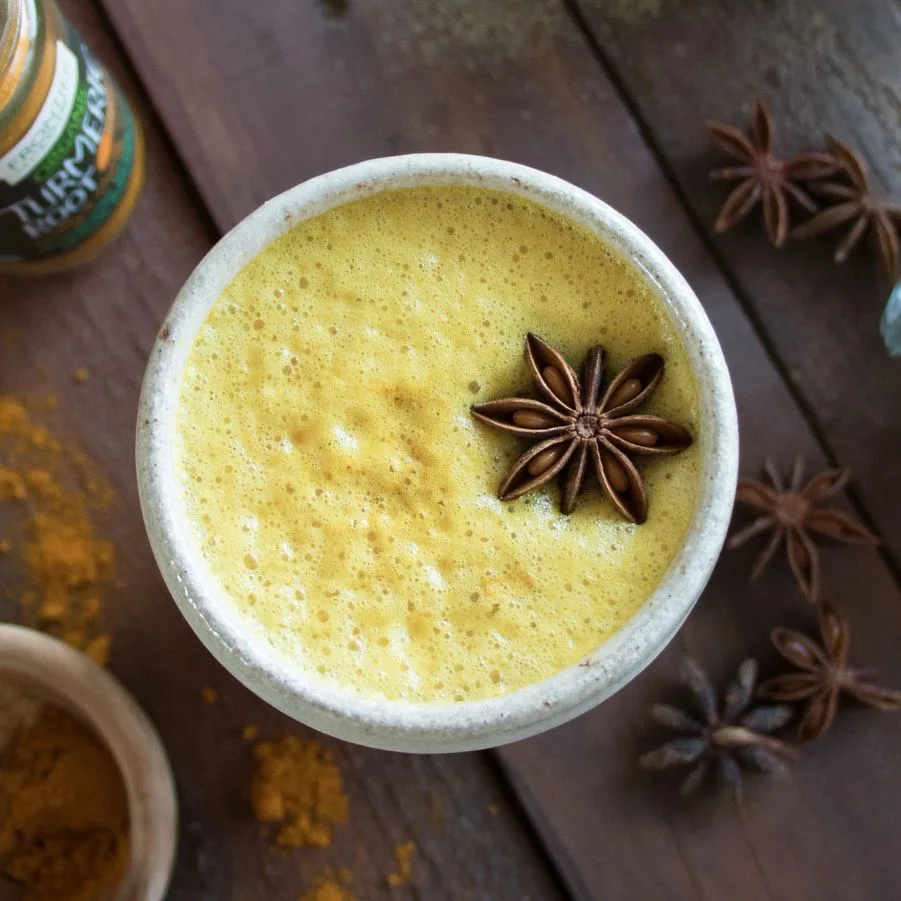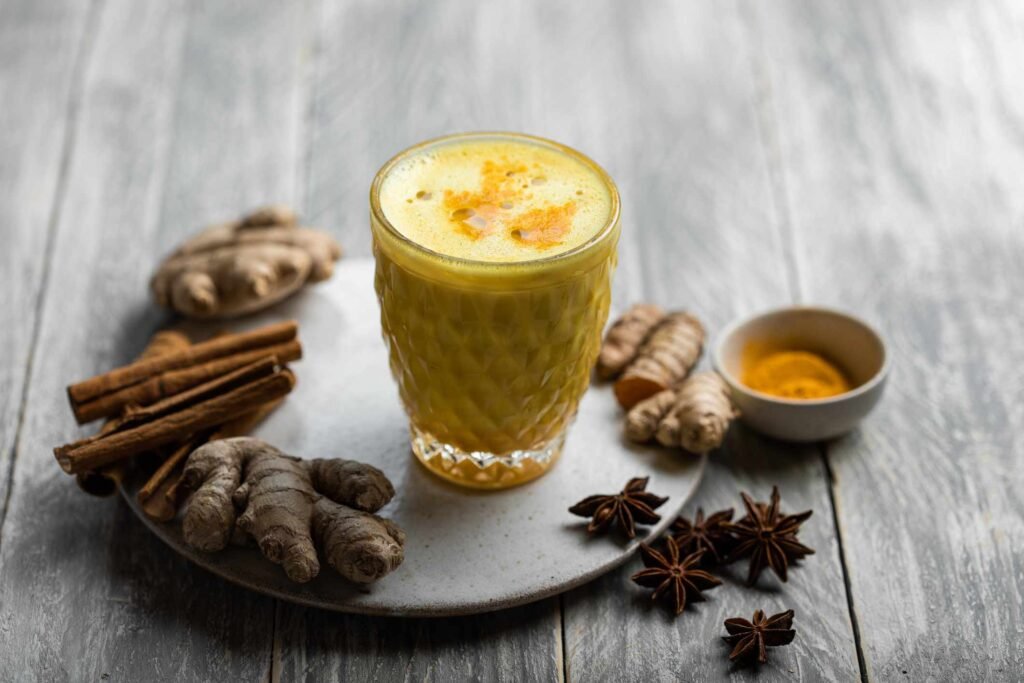In recent years, turmeric has emerged as a superfood of remarkable versatility and health benefits. Its primary bioactive compound, curcumin, is renowned for its anti-inflammatory, antioxidant, and immune-supporting properties. Incorporating turmeric into your daily routine through turmeric tea—a warm, soothing beverage made from fresh or powdered turmeric—offers not only a flavorful ritual but also a practical approach to enhancing overall health. This article explores the science-backed benefits of turmeric tea, preparation methods, variations, and tips for maximizing its efficacy, making it an ideal topic for culinary and nutrition-focused research.
The Origins and Appeal of Turmeric Tea

Turmeric (Curcuma longa) is a bright yellow-orange root native to South Asia, widely used in traditional Ayurvedic and Chinese medicine. Historically, it has been celebrated for its healing, digestive, and immune-boosting properties. Turmeric tea, also known as “golden milk” or “haldi doodh” when combined with milk, has gained popularity as a daily wellness beverage.
The appeal of turmeric tea extends beyond its medicinal properties. Its warm, earthy flavor with subtle bitterness and mild peppery undertones makes it a comforting drink. When paired with complementary spices such as ginger, cinnamon, and black pepper, it becomes aromatic, flavorful, and highly palatable. Additionally, the ritual of sipping turmeric tea can promote mindful eating and relaxation, contributing to mental well-being.
Nutritional and Bioactive Properties

The health benefits of turmeric tea primarily stem from curcumin, a polyphenol with potent biological activity:
- Anti-inflammatory effects: Curcumin inhibits molecules that trigger chronic inflammation, potentially reducing the risk of conditions such as arthritis and cardiovascular disease.
- Antioxidant activity: Curcumin neutralizes free radicals and boosts the body’s own antioxidant enzymes, protecting cells from oxidative stress.
- Immune support: Curcumin enhances immune cell function and modulates immune responses, supporting defense against infections.
- Digestive health: Turmeric promotes bile production, improving digestion and nutrient absorption.
- Brain health: Emerging studies suggest that curcumin may support cognitive function by reducing inflammation and oxidative stress in neural tissues.
Other ingredients often added to turmeric tea—like ginger, cinnamon, and black pepper—also contribute health-promoting compounds, enhancing flavor and synergistically improving curcumin absorption.
How to Prepare Turmeric Tea
Ingredients:
- 1 teaspoon fresh turmeric root, grated, or 1/2 teaspoon turmeric powder
- 1 cup water
- Optional: 1/2 teaspoon fresh ginger, grated
- Optional: 1/4 teaspoon black pepper (enhances curcumin absorption)
- Optional: sweetener (honey, maple syrup, or stevia)
- Optional: a splash of plant-based milk for creaminess
Preparation:
- Bring water to a gentle boil.
- Add turmeric and ginger (if using) and simmer for 5–10 minutes.
- Remove from heat and strain into a cup.
- Add black pepper, sweetener, or milk if desired.
- Stir well and enjoy warm.
Tip: For stronger flavor and potency, simmer longer and adjust turmeric and ginger quantities according to taste.
Health Benefits of Daily Turmeric Tea

1. Anti-Inflammatory Support
Chronic inflammation is a precursor to many diseases, including heart disease, diabetes, and arthritis. Curcumin in turmeric tea inhibits pro-inflammatory cytokines and enzymes, helping reduce inflammation naturally. Regular consumption may contribute to long-term joint health and cardiovascular support.
2. Immune System Boost
The antioxidants and bioactive compounds in turmeric enhance immune cell activity. Drinking turmeric tea daily can support the body’s defense mechanisms, especially during cold and flu season.
3. Digestive Health
Turmeric stimulates bile production, which aids in fat digestion and improves nutrient absorption. Combined with ginger, turmeric tea can alleviate bloating, reduce gas, and promote healthy gut function.
4. Brain Health and Mood Support
Curcumin crosses the blood-brain barrier and may support the production of brain-derived neurotrophic factor (BDNF), a compound linked to learning, memory, and cognitive function. Regular turmeric tea consumption has been associated with improved mood and reduced anxiety symptoms in some studies.
5. Cardiovascular Benefits
Curcumin supports heart health by improving endothelial function, reducing oxidative stress, and moderating cholesterol levels. Incorporating turmeric tea as a daily habit may contribute to cardiovascular longevity.
6. Skin Health
The antioxidant and anti-inflammatory properties of turmeric help reduce oxidative damage and promote a healthy, glowing complexion. Turmeric tea can support internal skin health when consumed regularly.
Enhancing Turmeric Tea for Maximum Benefits

1. Add Black Pepper
Piperine, the active compound in black pepper, increases curcumin absorption by up to 2,000%, making your daily turmeric tea more effective.
2. Incorporate Healthy Fats
Adding plant-based milk (almond, oat, or coconut) or a small amount of coconut oil improves curcumin bioavailability, as curcumin is fat-soluble.
3. Complementary Spices
Cinnamon, cardamom, and nutmeg not only enhance flavor but also contribute antioxidants and anti-inflammatory compounds, creating a synergistic wellness drink.
4. Mindful Consumption
Sipping turmeric tea slowly in the morning or evening allows the body to absorb nutrients more effectively and provides a calming, ritualistic moment that promotes mental wellness.
Variations of Turmeric Tea

- Golden Milk: Turmeric with warm plant-based milk, black pepper, and honey.
- Citrus Turmeric Tea: Add lemon or orange juice for vitamin C and a refreshing twist.
- Spiced Turmeric Tea: Include cinnamon, cardamom, or cloves for extra flavor and antioxidants.
- Iced Turmeric Tea: Brew tea, cool, and serve over ice with a splash of citrus for a refreshing summer beverage.
- Turmeric Ginger Detox: Combine turmeric, ginger, lemon, and a touch of maple syrup to support digestion and detoxification.
These variations demonstrate the versatility of turmeric tea, allowing it to be adapted to different tastes, seasons, and wellness goals.
Tips for Daily Consumption
- Consistency is key: Daily intake ensures sustained anti-inflammatory and antioxidant effects.
- Start small: Begin with 1/2 teaspoon of turmeric powder or 1 teaspoon of fresh root per day and increase gradually.
- Pair with a balanced diet: Turmeric tea complements a plant-based diet rich in vegetables, fruits, whole grains, and legumes.
- Use fresh ingredients when possible: Fresh turmeric root provides a more potent and aromatic experience.
Nutritional Considerations
A standard cup of turmeric tea provides:
- Calories: Minimal, unless sweetened or combined with milk.
- Micronutrients: Vitamins C and B6 (from added ingredients like ginger or lemon) and minerals such as manganese and iron.
- Bioactive compounds: Curcumin, piperine (if black pepper is added), gingerols, and antioxidants.
Turmeric tea is naturally gluten-free, vegan, and low-calorie, making it suitable for various dietary preferences while promoting holistic health.
Environmental and Ethical Benefits
Turmeric is a plant-based, sustainable spice widely cultivated in India and other tropical regions. Using locally sourced turmeric or organic varieties supports sustainable agriculture, reduces environmental impact, and ensures fresher, more potent roots. As a vegetarian wellness beverage, turmeric tea exemplifies ethical, eco-conscious consumption.
Conclusion
Drinking turmeric tea daily offers a wide range of health benefits, from anti-inflammatory and antioxidant support to improved digestion, immunity, and brain health. Its warm, earthy flavor combined with complementary spices makes it a pleasurable and soothing beverage suitable for everyday consumption.
Incorporating turmeric tea into your routine is simple yet effective. By adding black pepper, healthy fats, and optional complementary spices, you can maximize the bioavailability of curcumin and enhance the overall wellness impact of your tea. Variations like golden milk, spiced tea, or iced turmeric tea provide versatility for different seasons and preferences.
Ultimately, turmeric tea is more than just a beverage—it is a holistic wellness ritual. Its combination of flavor, nutrition, and ritualistic enjoyment makes it an ideal addition to a plant-based lifestyle, supporting long-term health, vitality, and mindfulness. Whether consumed in the morning, evening, or throughout the day, turmeric tea provides a daily dose of wellness that is simple, effective, and deeply satisfying.
